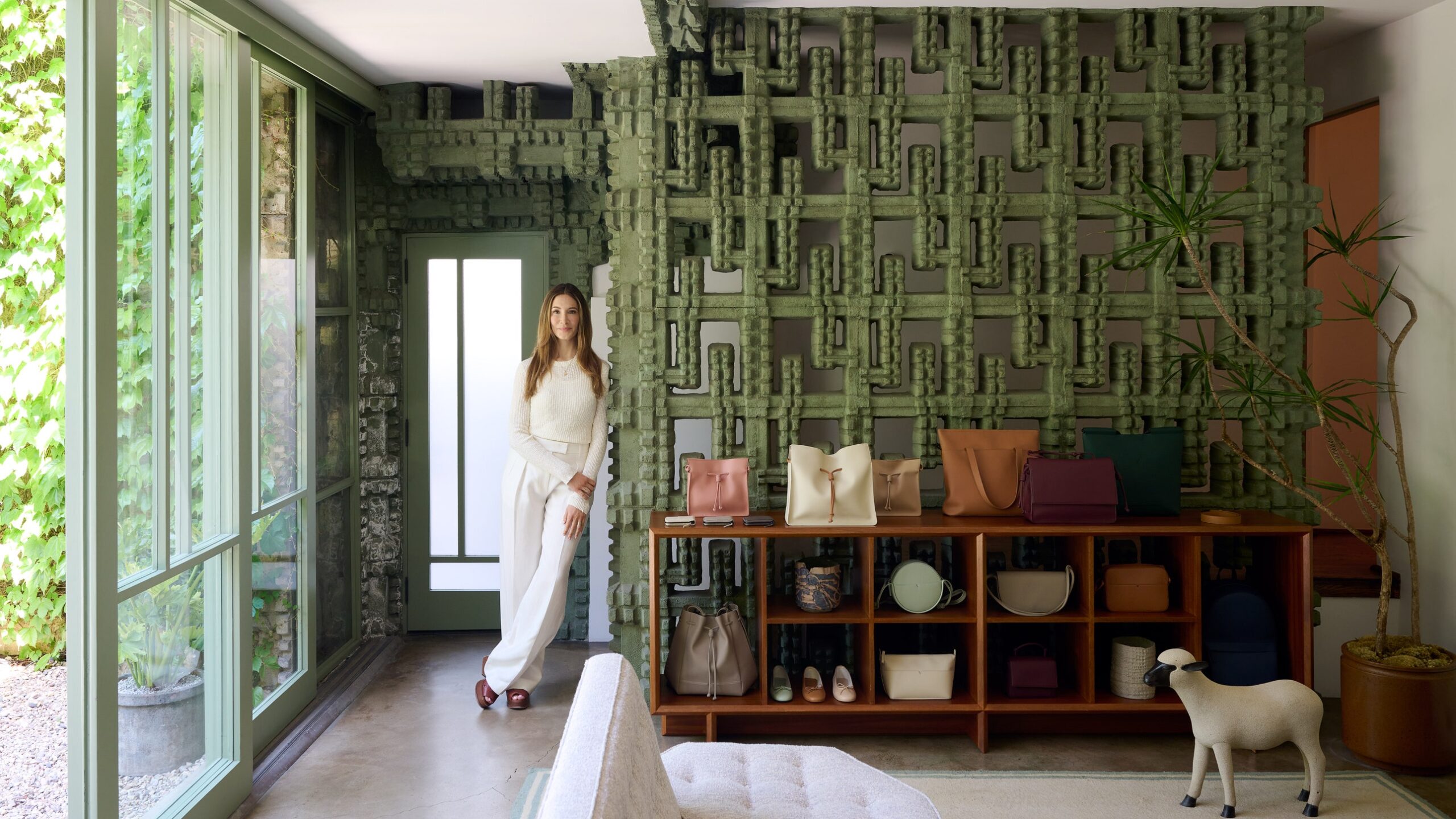It seems not only fitting but poetic that Los Angeles–based designer and eco-preneur Vicki von Holzhausen chose architect Lloyd Wright’s own 1927 studio and residence as the symbolic headquarters of her namesake company, von Holzhausen, a pioneer in the development of high-performance plant-based materials. With its signature concrete blocks of abstracted Joshua trees, the idiosyncratic landmark, designed by the son of the illustrious Frank Lloyd Wright, represents a fusion of structural innovation and reverence for nature. “The design is an homage to the plant, so it’s the perfect spot for us,” says von Holzhausen, who utilizes the space as a showroom, meeting center, and incubator for new ideas. “Here, we use our products to tell the story of material innovation.”
A native of Pasadena, von Holzhausen studied car design at ArtCenter College of Design before muscling her way into the male-dominated auto industry with gigs at Mercedes-Benz and Audi in Germany and at General Motors in the US. “I saw my sketches become real cars on the road, which was thrilling, but there are only so many times you can do that,” she says. “I was raising two little boys and I asked myself, ‘What will be impactful? What will make a difference for coming generations?’ I started with the idea of using a sustainable leather alternative to make accessories—bags, wallets, belts, and so on. But I quickly realized there was so much more opportunity to bring the concept to a bigger market,” she continues.
Determined to make her own eco-conscious materials from scratch, von Holzhausen built her own laboratory, equal parts advanced chemistry and alchemy, in Los Angeles. Her first product, Technik—the one she used to launch her accessories line as well as a collection of watchbands for Apple—was crafted from postconsumer plastics and plants. “But that didn’t solve the problem of petroleum, so we committed ourselves to developing more purely plant-based offerings. To make a meaningful impact on the planet, we had to come up with something we could produce at scale, something genuinely durable and performance-oriented,” she says.

